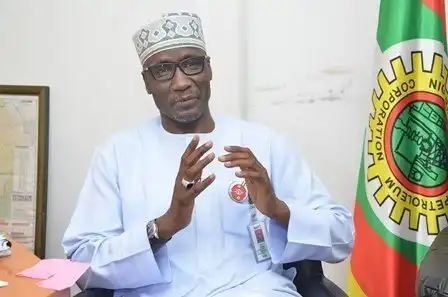- Project may cost $25bn, reach 25 years
The Group Chief Executive Officer of the Nigerian National Petroleum Company Ltd, Mele Kyari, has said that the Nigeria-Morocco Gas Pipeline Project will create wealth, and improve the standard of living of countries within the African region.
He stated this on Thursday during the signing ceremony of the Nigeria-Morocco Gas Pipeline Project Memoranda of Understanding among NNPC, ONHYM (the National Office of Hydrocarbons and Mines of Morocco) and ECOWAS; NNPC, ONHYM and SMH; and NNPC, ONHYM and PETROSEN in Morocco.
He said, “As you are aware, our countries stand to benefit immeasurably from the execution of the project which extends beyond the supply of gas to energize the countries along the route.
“Some of the benefits include creation of wealth and improvement in standard of living, integration of the economies within the region, mitigation against desertification and other benefits that will accrue as a result of reduction in carbon emission.”
The Nigeria-Morocco Gas Pipeline (NMGP) Project is an initiative of the Federal Government of Nigeria and the Kingdom of Morocco and was conceived during the visit of King Mohammed VI of Morocco to Nigeria in December 2016.
It will also assist in supplying gas to Morocco, 13 ECOWAS countries and Europe, and integration of the economies of the Sub-region.
The pipeline is a 48 Inch X 5,300 Km (Offshore from Brass Island-Nigeria to Dakhla-Morocco) and 56” X 1,700 Km (onshore from Dakhla-Morocco to MEP), with a total length of about over 7,000km and about 13 compressor stations.
The pipeline begins from Brass Island (Nigeria) and terminates at North of Morocco, and connects to existing Maghreb European Pipeline (MEP) which is from Algeria (via Morocco) to Spain.
During the signing of a previous agreement in 2018, the both countries said the underwater project could take 25 years to finish. More so, Offshore Technology, a global energy player on its website in June 2022 said the project cost is estimated at $25 billion and would transport about 5,400 billion cubic metres of gas annually to Morocco. Already, the Saudi Arabia-based Islamic Development Bank and the OPEC Fund for International Development have committed nearly $60 million to the project.

 Join Daily Trust WhatsApp Community For Quick Access To News and Happenings Around You.
Join Daily Trust WhatsApp Community For Quick Access To News and Happenings Around You.


